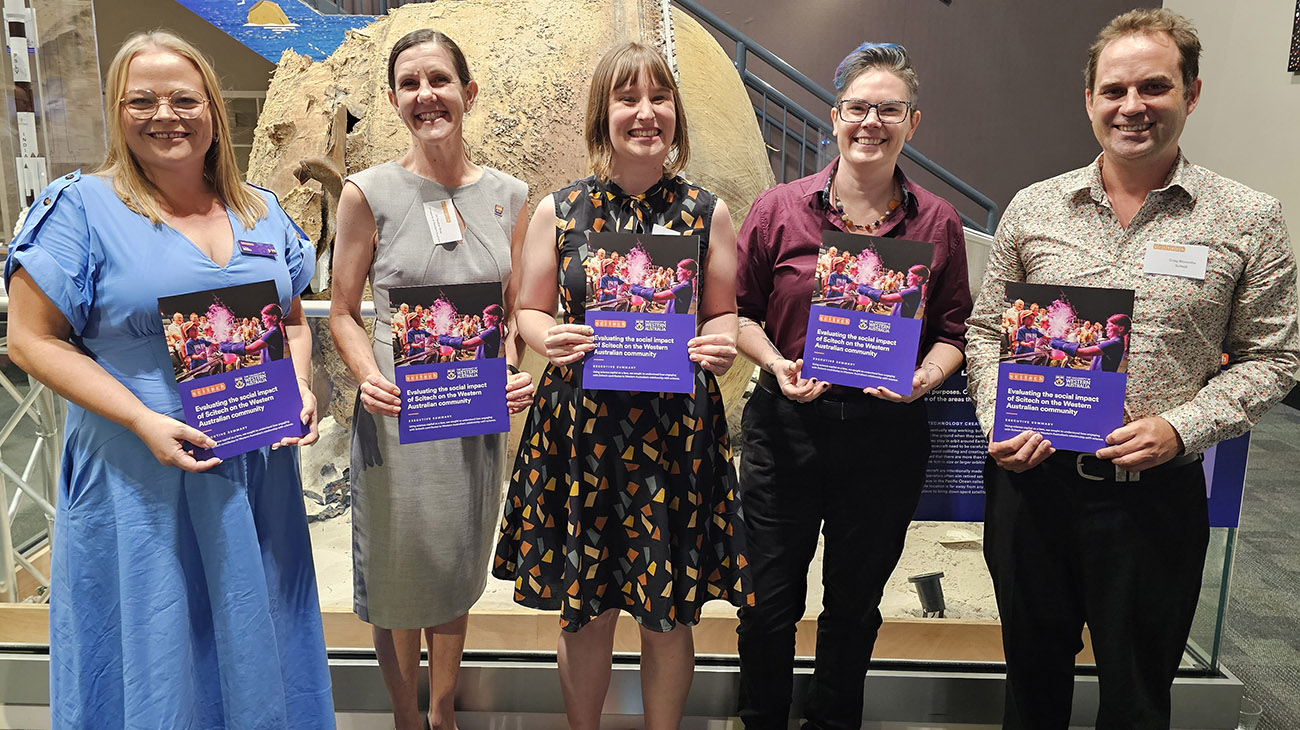Posted Tuesday, 8 April 2025
Why you don’t need to be an expert in AI to teach it
Scitech’s Professional Learning Consultant, Lucas Black, talks about how teachers can integrate AI into their classrooms.
Scitech is open this Easter long weekend - 9am to 4pm!
Scitech is open this Easter long weekend - 9am to 4pm!
Scitech is open this Easter long weekend - 9am to 4pm!
Scitech is open this Easter long weekend - 9am to 4pm!
Scitech teamed up with the University of Western Australia to understand the relationship between Scitech and how people engage in science.

Last year, more than 300,000 people visited the Scitech Discovery Centre, and our Statewide programs engaged more than 125,000 students and teachers across the State. But beyond these statistics, we wanted to take a deeper dive into understanding Scitech’s social impact.
Scitech teamed up with the University of Western Australia’s Science Communication unit to conduct a pilot study, using the conceptual framework of ‘science capital’ as a lens to understand the relationship between Scitech and people’s science engagement.
Science capital refers to the science-related knowledge, attitudes, behaviours and experiences people accumulate throughout their life.
Scitech Audience Research Manager Shanii Phillips said the study involved surveying more than 650 people and conducting 17 in-depth interviews to understand how Scitech fits into people’s science learning journeys, with some insightful results.
“We found that Scitech is a place where people with any level of science capital can explore, interact and engage,” said Ms Phillips.
“We’re not just reaching parents and families who already love and regularly engage with science, but also those who don’t see themselves as a ‘science person’ and may typically only engage with science because of their children’s needs or interests.”
The research showed Scitech means many different things to different people and their motivations for engaging with Scitech are shaped by their level of science capital.
“For some, it’s a place where they can deeply explore their existing passion for science and share that with their children,” said Ms Phillips.
“For others, it may be the only place where they recognise they are ‘doing science’ and can begin to connect how science relates to their daily lives.
“The research highlights how informal science learning experiences need to be flexible and open-ended, so people can engage in ways that work and make sense for them.”
“We want people of all levels of science capital to continue to feel like they belong in science spaces.”
Scitech and the University of Western Australia shared their insights and the report with members of the WA STEM engagement community, as well as government and corporate partners at an event at the Scitech Planetarium on 27 March 2025.
The full report Evaluating the social impact of Scitech on the Western Australian community is available on the Scitech website.
Upon clicking the "Book Now" or "Buy Gift Card" buttons a new window will open prompting contact information and payment details.